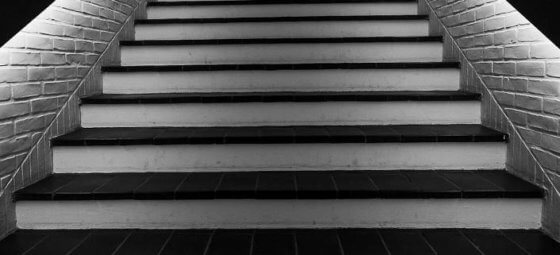If you live in an apartment building in New York City, you have the right to a safe, secure home. Whether in high-rise buildings or other types of apartments, landlords in the city are subject to local and state laws that dictate the physical condition of housing.
Too frequently, falls caused by poor conditions in apartment buildings seriously harm tenants. In some cases, injured tenants win compensation for their injuries. For example, a court awarded a woman $350,000 after she slipped and fell on a staircase that had just been painted in her apartment building, which injured her back and neck.
You are required as a tenant to comply with the law, including allowing your landlord reasonable access to your apartment to make repairs. But even when tenants uphold their responsibilities, landlords sometimes do not. What are the legal requirements for landlords in New York City to keep buildings safe from hazards that can cause falls, and how can you sue if you’re harmed by your landlord’s negligence?
Landlords’ Responsibilities

Apartment building owners are required to ensure that their property is well-maintained, clean and safe for tenants — in individual residences and in common areas. In addition, owners must provide sufficient lighting and remove any debris or other hazards, including water, that could cause people to trip or slip and fall.
Handrails, stairs, stairwells, doorways, roofs, HVAC systems and all other building features must remain in good repair to ensure safe passage by individuals moving around the property.
As a tenant, you have the right to request repairs to any building system or feature that fails to function properly. Your landlord has a duty to respond to your request within a reasonable time. If someone is injured by a condition you or another tenant have reported and your landlord failed to take action in a timely manner, the landlord may be liable for damages to the harmed individual.
Landlords do have some discretion over when and how they fix problems. For example, a cabinet door malfunctioning may not warrant immediate attention. But frozen water pipes in winter pose immediate, untenable conditions for the affected residents and can cause a slipping hazard should flooding result. If you or another tenant sustains injuries due to your landlord’s inaction, a court may rule on whether the landlord acted negligently.
When you move into a new apartment, make sure your lease spells out your rights and the landlord’s responsibility for keeping your residence and apartment building safe and usable. Most rental agreements require landlords to keep leased or rented premises suitable for human habitation and to correct conditions that can pose hazards to residents’ health and safety — including any conditions that can result in falls.
In addition to general maintenance and repairs, landlords bear responsibility for keeping every part of their buildings free from debris, garbage and vermin and for ensuring that there is sufficient room for safely passing through stairwells, doorways and other areas.
Landlord Negligence Cases
If you’ve been injured in a fall due to negligence, it’s important to understand how to sue your landlord. Serious injuries do not always manifest immediately. It is critical that you establish legal liability to ensure that you receive compensation for any future medical care, lost time from work, or other expenses that result from the injury.
In the case of the woman who was awarded $350,000, the Ivan Diamond Bronx Personal Injury Attorney established that the building owners had not provided a safe path for walking through the area of the freshly painted stairs.
The first step in suing your New York City landlord for injuries is setting up a consultation with an experienced personal injury attorney. Your attorney will begin compiling evidence, including reviewing the terms of your lease, the conditions in your apartment building, and the medical information about injuries you have sustained.
Your attorney will establish that your case is within the statute of limitations — three years in New York — along with identifying the local and state laws that may affect your lawsuit. In addition, your attorney will attempt to determine if the court may rule that you contributed to your injuries in any way, which could reduce the amount of a monetary award.
After reviewing all the evidence and pertinent law, your personal injury attorney will file the appropriate paperwork to begin the process of suing your landlord for damages. In determining your landlord’s degree of liability, the court will consider factors including whether the landlord was negligent and the degree to which the landlord’s negligence caused or contributed to your injury.
Work With an Experienced New York City Injury Attorney
Injuries due to a fall can cause long-term or permanent pain, suffering, loss of income, and other harm. By choosing to work with a qualified personal injury attorney, you give yourself the best chance of winning compensation to cover your medical bills, pain and suffering, time missed from work, and other expenses. To schedule a free personal consultation, please contact the Ivan Diamond Bronx Personal Injury Attorney.



